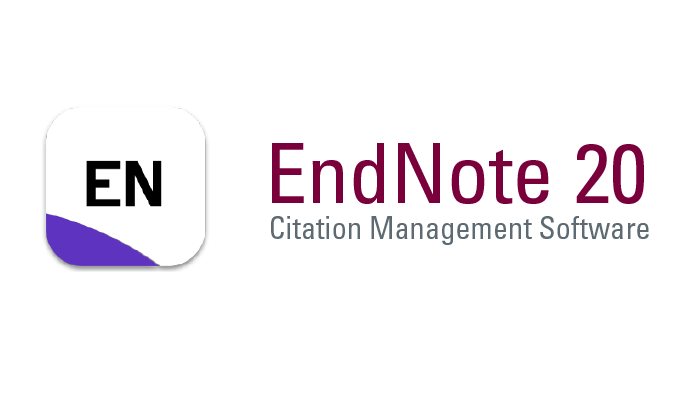WANITA KARIR DALAM PERSPEKTIF HUKUM ISLAM
(Tinjauan Keluarga Sakinah Dosen STAI Jamiatut Tarbiyah Lhoksukon Aceh Utara)
DOI:
https://doi.org/10.47887/amd.v6i1.193Keywords:
Career Women, Sakinah Family, Role of Women, Equality, GenderAbstract
The background of the study examines how career women are considered to be moving and towards gender equality with men, but career women are considered a step backwards in maintaining the image of Eastern customs. Research objectives: 1) to know the efforts of career women in realizing a harmonious family. 2) find out the position of career women in a harmonious family. 3) find out the existence of career women in the analysis of Islamic law. This research was conducted on female lecturers at STAI Jamiatut Tarbiyah, Lhoksukon North Aceh Campus using a qualitative descriptive approach, which seeks to describe some data obtained from the field, both through interviews, observations, and documentation. Then it is continued with the data analysis process. The results of this study show that: 1) The efforts of women who have careers as lecturers at STAI Jamiatut Tarbiyah Lhoksukon Aceh Utara in realizing a harmonious family include: a) quality time, b) maintaining good communication, c) open attitude, d) mutual understanding, e) time management, f) husband's support for his wife for a career, g) maintaining family integrity; 2) The position of the career woman in the concept of a harmonious family is still below the position of her husband so that she must remain obedient and obedient to her husband; 3) In the analysis of Islamic law, there is no distinction between the right of men and women to work, both are given the opportunity and freedom to struggle and earn their own livelihood on this earth.
References
Arus, D. (2017). Desain Wanita Karier Menggapai Keluarga Sakinah. Deepublish.
Bandiyah, S. (2021). Wonderfull Muslimah Karier. PT Gramedia Pustaka Utama.
BPS. (2024). Perempuan sebagai Tenaga Profesional (Persen), 2022-2024. Www.Bps.Go.Id. https://www.bps.go.id/id/statistics-table/2/NDY2IzI=/perempuan-sebagai-tenaga-profesional.html
Fadli, M. R. (2021). Memahami desain metode penelitian kualitatif. Humanika, 21(1), 33–54. https://doi.org/10.21831/hum.v21i1.38075 DOI: https://doi.org/10.21831/hum.v21i1.38075
Fanani, B. (1993). Wanita Islam dan Gaya Hidup Modern. Pustaka Hidayah.
Fatimah, T. (2015). Wanita Karir Dalam Islam. Jurnal Musawa, 7(1).
Hermanto, A. (2015). Islam, Poligami, dan Perlindungan Kaum Perempuan. Jurnal Studi Agama, Dan Pemikiran Islam, 9(1).
Hermawan, H., & Nugraha, A. (2018). Kewenangandan Kedudukan Perempuan Dalam Perspektif Gender: Suatu Analisis Tinjauan Historis. Jurnal Perempuan, Agama, Dan Gender, 17(1). DOI: https://doi.org/10.24014/marwah.v17i1.4515
Iksa, N. (1998). Karir Wanita Di Mata Islam. Pustaka Amana.
Intan, S. (2014). Kedudukan Perempuan Dalam Domestik dan Publik Perspektif Gender (Suatu Analisis Berdasarkan Normatifisme Islam). Jurnal Politik Profetik, 3(1).
Lestari, S. (2015). Pembagian Peran dalam Rumah Tangga Pada Pasangan Suami Isteri Jawa. Jurnal Humaniora, 16(1).
Mulyati, S. (2004). Relasi Suami Istri Dalam Rumah Tangga. PSW UIN Syarif Hidayatullah.
Nata, A. A., & Mubarok, J. (2003). Metodologi Studi Islam. Remaja Rosda Karya.
Pasal 1 Undang-Undang Perkawinan No. 1 Tahun 1974.
Riyanto, A. (2021). Tanggung Jawab Orang Tua Pada Anak Era Digitalisasi Dalam Perspektif Hukum Keluarga Islam (Studi Kasus Desa Jebung Kidul, Kecamatan Tlogosari, Kabupaten Bondowoso).
Tim Redaksi Nuansa Aulia. (2017). Kompilasi Hukum Islam. Nuansa Aulia.
Waruwu, M. (2024). Pendekatan Penelitian Kualitatif: Konsep, Prosedur, Kelebihan dan Peran di Bidang Pendidikan. Afeksi: Jurnal Penelitian Dan Evaluasi Pendidikan, 5(2), 198–211. https://doi.org/10.59698/afeksi.v5i2.236 DOI: https://doi.org/10.59698/afeksi.v5i2.236
Yayasan Kesehatan Perempuan. (2020). Keadilan, Kesetaraan dan Perspektif Gender. Ykp.or.Id. https://ykp.or.id/datainfo/materi/326#:~:text=Perspektif Gender adalah cara pandang,berfikir%2C bersikap dan dan bertindak.
Downloads
Published
How to Cite
Issue
Section
License
Copyright (c) 2025 Isnu Cut Ali, Muhammad Nasir

This work is licensed under a Creative Commons Attribution-ShareAlike 4.0 International License.
Authors retain copyright and grant the journal right of first publication and this work is licensed under a Creative Commons Attribution-ShareAlike 4.0 that allows others to share the work with an acknowledgement of the works authorship and initial publication in this journal.
All articles in this journal may be disseminated by listing valid sources and the title of the article should not be omitted. The content of the article is liable to the author.
Authors are able to enter into separate, additional contractual arrangements for the non-exclusive distribution of the journal's published version of the work (e.g., post it to an institutional repository or publish it in a book), with an acknowledgment of its initial publication in this journal.
Authors are permitted and encouraged to post their work online (e.g., in institutional repositories or on their website) prior to and during the submission process, as it can lead to productive exchanges, as well as earlier and greater citation of published work.
In the dissemination of articles by the author must declare the Al-Madaris Jurnal Pendidikan dan Studi Keislaman as the first party to publish the article.














